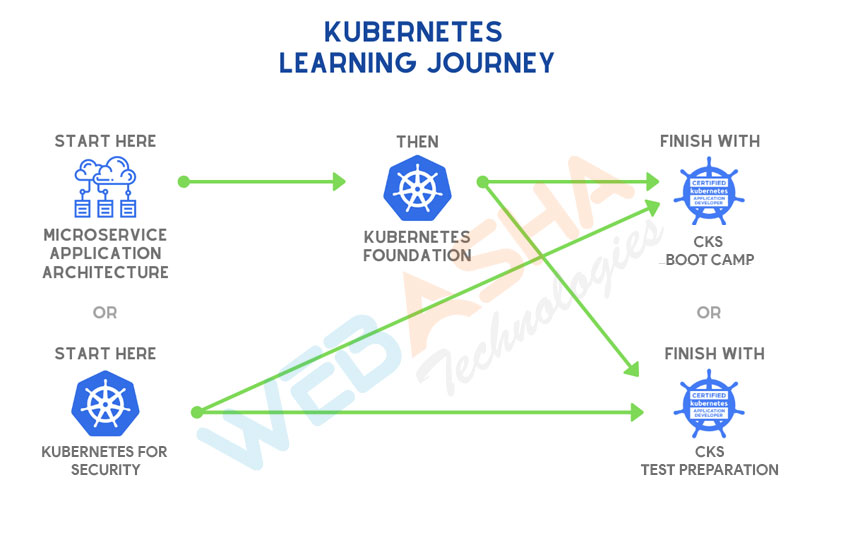Certified Kubernetes Security Specialist (CKS) Training & Certification Exam Center
Certified Kubernetes Security Specialist (CKS) Training & certification Exam Overview
Kubernetes is one of the topmost trending technology in Cloud Computing as of moment. Kubernetes had the fastest growth in job hunts, over a 180 from a time before as reported recently by a survey conducted by Indeed. Learn, exercise, and get certified on Kubernetes with hands-on labs in our practical lab.
Learning and understanding of Kubernetes is essential skills for any DevOps professional. DevOps masterminds are always in demand. Presently the average Silicon Valley payment for a DevOps engineer is 20 advanced than what a software architect makes. DevOps architects make an normal of $180,000 to 250,000$ annually. And One of the topmost in- demand skills is Kubernetes Administration.
Kubernetes is an open- source system for automating deployment, scaling, and operation of containerized operations. It was originally designed by Google and is now maintained by the Cloud Native Computing Foundation( CNCF).
Simplify Complex Technology
Kubernetes is at the slice- edge of operation deployment. To elevate your DevOps career, learn how to effectively fix operations on Kubernetes.
This course helps you gain the knowledge demanded to design and fix pall native operations on a Kubernetes cluster. A series of well designed lectures with vitality and illustration help you understand complex generalizations fluently.
Prerequisites
Recommended general understanding of Linux OS.
Who is it for?
The Certified Kubernetes Security Specialist (CKS) certification and coaching helps advancing the talents of:
- System Administrators
- DevOps Professionals
- Application Developers
What You Will Receive?
- We provide Original Certified Kubernetes Security Specialist (CKS) Official Curriculum, Webasha provides a complete Certified Kubernetes Security Specialist (CKS) Study kits to perform lab practical.
- We have a team of experienced and certified trainers.
- All of our trainers are certified in their respective fields.
- Most of our trainers have experience of working in core and overseas training.
“Why You Choose WebAsha Technologies for Certified Kubernetes Security Specialist (CKS) Training In Pune"
- Learn Certified Kubernetes Security Specialist (CKS) from basic to advance level.
- Live Project and Case study.
- Job oriented course content.
- Job assistance for fresher students.
- Personal level training attention and project monitoring.
- Small training batches for interactive training.
- Customized training Programs.
- Courseware includes all latest technologies.
- Flexible Training Schedule- Courses can be delivered at your chosen convenient time.
- Flexible group size.
- Affordable Training Price.
- Affordable course fee.
- Globally recommended Official Curriculum.
- Hands-on Instructor led training.
- Post Training Support.
- Specialized Batch for Corporate Clients.
- Most advanced Training Resources –structured course material, learning CDs.
- Full Time Lab Environment as per globally recommended standards.

Comments
Post a Comment